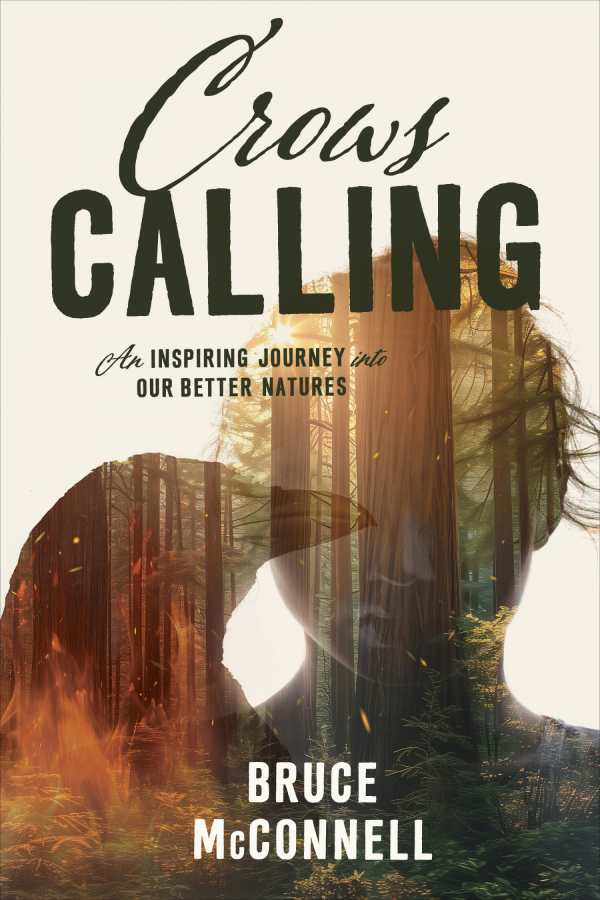Crows Calling
An Inspiring Journey into our Better Natures
Focused on the enduring relationships between human beings and the earth, Crows Calling is a perspective-driven novel that delights in ecoconsciousness.
Climate change centers Bruce McConnell’s fantastical novel Crows Calling, in which plants and animals direct human attention to their plight.
In Monterey, California, Makah nears tenure. Her family faces other changes too: Her husband Cody leaves his start-up, and their daughter, Luz, is coming of age. They are all also sensitive to warnings of impending climate doom.
Meanwhile, various flora and fauna, headed by Koro the crow, plan a climate intervention. Luz is tapped to be an ambassador for them, spreading their code of conduct. The family also makes personal changes to reflect these principles: Makah improves her diet and habits; Cody’s new work ensures kelp’s survival; Luz leads protests at school. Their examples inform their community’s responses, as when Cody’s coworker encounters a wild cat whose influence turns him from a greedy, desperate businessman into an empathetic entrepreneur.
Throughout the book, Koro discusses animal and human plots across time and media, including myths about crows, bears, and wolves. She works to relate human dramas to nature’s code as it plays out on a global level. Koro and Luz talk to each other, too, establishing mutual camaraderie. They also have to contend with the daily impacts of the climate crisis, as when earthquakes and fires shape life in Monterey.
Many of the book’s scenes have a didactic quality, as with coverage of holidays and memorial and feminist celebrations. In them, people come together around sustainable foods and practices to leave a lasting mark. Inside and outside of such ceremonies, Luz’s bond with a spiritual guide, Anna, helps strengthen her ties to the animals. Luz comes to exemplify the broader struggle to normalize earth-conscious practices, but she is a too-overt vehicle for these ideas.
Further, while Luz and other characters have an impact on the environment and on others’ perspectives, their lives beyond these ventures are not given as much attention, flattening their characterizations: Makah’s pursuit of tenure seems tenuous, while Cody’s new venture plateaus. Meanwhile, the novel’s six parts grow shorter and their pacing more urgent, though the story itself is informed most by continual progress. Its characters become better able to handle extreme weather, puberty, and death, and animals come to human aid more often. There are violent episodes, but they are few and far between; for the most part, the book’s tone is pensive. A late shift to follow Koro’s induction into a secret society is jarring and also takes the story beyond its local focus so that Koro can address the world, holding up Monterey as an exemplar of what can be accomplished if people and nature work together.
In the imaginative novel Crows Calling, human beings cooperate with nature to address the worsening climate crisis.
Reviewed by
Mari Carlson
Disclosure: This article is not an endorsement, but a review. The publisher of this book provided free copies of the book and paid a small fee to have their book reviewed by a professional reviewer. Foreword Reviews and Clarion Reviews make no guarantee that the publisher will receive a positive review. Foreword Magazine, Inc. is disclosing this in accordance with the Federal Trade Commission’s 16 CFR, Part 255.

